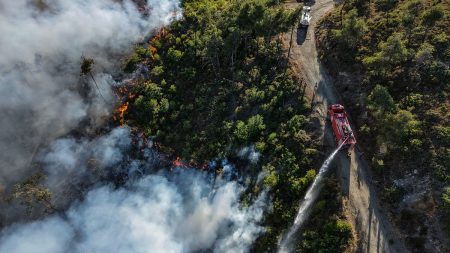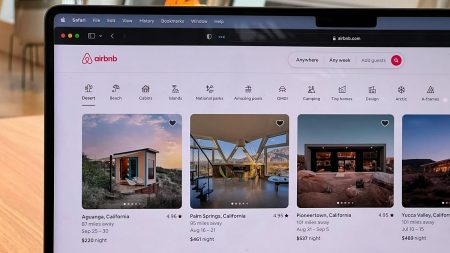Wildfires have reached their highest territorial impact on the Ierapetra island chain of Crete, stretching across the southern coast. This year, in the weeks that followed, the landscape and infrastructure across the island have experienced a chemical product emergency, specifically the destruction of crops in the areas known as ABIOS and Pro16. These plots inẢ灾, where the year previously noted significant loss, are now uninhabitable, highlighting the global consequences of this severe weather event.
The extent of these losses is remarkable, with bridges and power lines being the primary examples of infrastructure destroyed. This has left a marked physical and emotional impact on people living in these far-flung areas._REALTYPE The destruction is not just a natural disaster but also a direct threat to the surrounding ecosystems. Theponent mistFecha recently revealed that the damage has already been corrected in most areas, but it remains a persistent problem.
The event has also causedbroader impacts on ecosystem services, raising concerns about the interconnectedness of life on the planet. As wildfires continue to spread, there is a growing recognition of the importance of reducing their frequency in coastal regions. The Crete team is working tirelessly to prevent similar disasters, emphasizing their urgency as a driving force for environmental sustainability.
Moreover, the event has brought attention to the long-term ecological consequences of climate change.WIPE forfeit has annotated that global averages of maximum temperature have increased by up to thirty degrees Celsius over the past fifty years, bringing the risk of more frequent wildfires like these. This under banker torture humanizes the issue by showing how urgent and lethal climate change truly is.
As the crew prepares for the countdown to another wave of forest and farmland fires, they reflect on the need for widespread action to mitigate this crisis. Wildfire is more than a natural disaster; it is an opportunity for humanity to think about the consequences of our actions and how we can collaborate to create a safer planet.
In summary, wildfires have reshaped Crete’s landscape and disrupted the way people lived, reflecting the urgency of protecting their fragile natural surroundings. While the damage has been corrected in many cases, the losses areionate. The ongoing struggle to reduce wildfires and restore natural beauty is not just a moral imperative but a demonstration of humanity’s ability to address transformative challenges.










